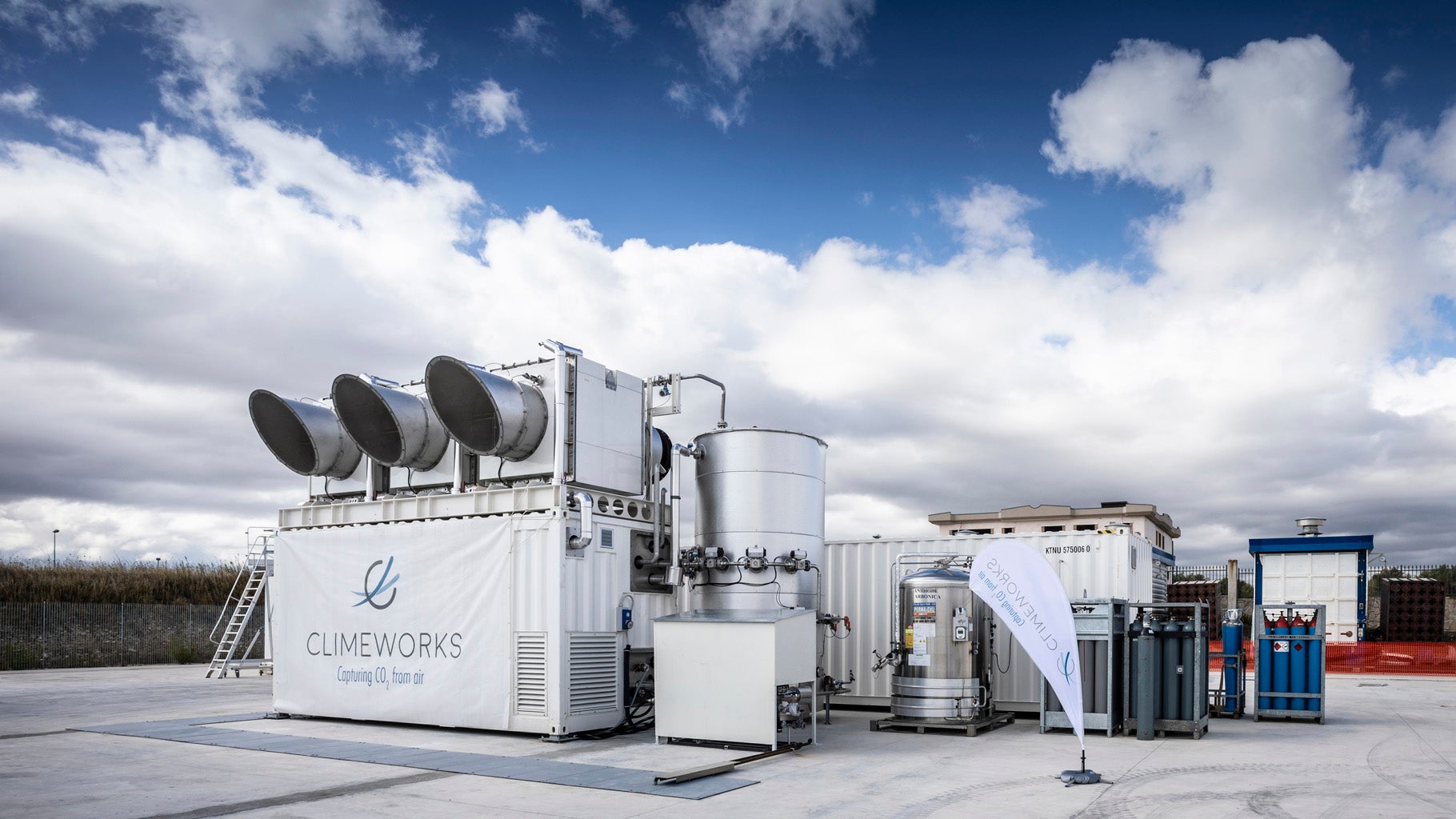A Swiss startup will turn carbon dioxide into stone—for a price
The world needs negative-emissions technologies, according to an upcoming report by the world’s foremost body on climate change. Given how much we’ve delayed reducing emissions, the world is likely to have emitted much more carbon dioxide than could be handled under the Paris climate agreement. If the world is to keep global average temperatures from rising by more than 1.5°C or 2°C, it will need to suck some of those emissions out of the air.


The world needs negative-emissions technologies, according to an upcoming report by the world’s foremost body on climate change. Given how much we’ve delayed reducing emissions, the world is likely to have emitted much more carbon dioxide than could be handled under the Paris climate agreement. If the world is to keep global average temperatures from rising by more than 1.5°C or 2°C, it will need to suck some of those emissions out of the air.
One of those technologies is direct air capture. It consists of a machine that extracts carbon dioxide from the atmosphere—like a tree, but super-charged—using fans to drive air onto a surface that has a chemical agent which only reacts with carbon dioxide. Once the carbon dioxide is captured, the rest of the air is released.
The new compound formed after carbon dioxide is captured is then exposed to heat, which reverses the reaction, releases carbon dioxide, and the chemical agent is recycled to capture more. The pure stream of carbon dioxide is then compressed and sent underground where it can be stored. The process of storing it is like extracting oil or natural gas—but in reverse.
Climeworks, a Swiss company, is one among three startups in the world working on direct air capture. In October 2017, it launched a demonstration project at a geothermal power plant in Iceland. The Climeworks’ plant captures carbon dioxide and a separate team at the power plant mixes the gas with water and injects it underground. The mixture is designed to react with basalt and become stone in less than two years.
Tomorrow (Oct. 8), Climeworks will announce that it is scaling up its Iceland plant by a factor of 50, boosting its capacity to capture emissions from 50 metric tons a year to 2,500 metric tons. For context, the world currently emits nearly 40 billion metric tons annually. To partially fund the expansion, the startup will allow individuals to buy carbon offsets, with actual purchasing likely to begin early next year.
The company wouldn’t disclose the pricing to Quartz, but the carbon offsets are unlikely to be cheap. At the current stage of technology development, Climeworks estimates that each metric ton of carbon dioxide costs between $600 and $800. That’s nearly 100 times the cost of carbon offsets currently on sale at Cool Effect, a crowdfunding site for environmental projects.
To be sure, the cost of carbon offsets are currently low because there are low-hanging fruits to be plucked. The project selling carbon offsets at $6 per metric ton is based on turning cow manure into biogas, instead of letting it escape into the atmosphere. Other methods of reducing emissions, such as capturing carbon dioxide from a power plant, are likely to cost in excess of $60 per metric ton.
If you do buy Climeworks’ offset, you’ll also be helping to develop a crucial technology. And the startup is guaranteeing that the emissions will be turned into stone, which is perhaps the highest standard offered by any carbon-offset program. Better still, Christoph Gebald, the startup’s co-CEO, says that as the company scales up—potentially through people buying offsets—technology development will bring it closer to the goal of cutting the cost of direct-air-capture technology to below $100 per metric ton.